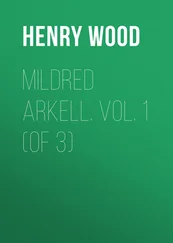Henry Wood - Victor Serenus
Здесь есть возможность читать онлайн «Henry Wood - Victor Serenus» — ознакомительный отрывок электронной книги совершенно бесплатно, а после прочтения отрывка купить полную версию. В некоторых случаях можно слушать аудио, скачать через торрент в формате fb2 и присутствует краткое содержание. Жанр: foreign_prose, literature_19, foreign_antique, на английском языке. Описание произведения, (предисловие) а так же отзывы посетителей доступны на портале библиотеки ЛибКат.
- Название:Victor Serenus
- Автор:
- Жанр:
- Год:неизвестен
- ISBN:нет данных
- Рейтинг книги:3 / 5. Голосов: 1
-
Избранное:Добавить в избранное
- Отзывы:
-
Ваша оценка:
- 60
- 1
- 2
- 3
- 4
- 5
Victor Serenus: краткое содержание, описание и аннотация
Предлагаем к чтению аннотацию, описание, краткое содержание или предисловие (зависит от того, что написал сам автор книги «Victor Serenus»). Если вы не нашли необходимую информацию о книге — напишите в комментариях, мы постараемся отыскать её.
Victor Serenus — читать онлайн ознакомительный отрывок
Ниже представлен текст книги, разбитый по страницам. Система сохранения места последней прочитанной страницы, позволяет с удобством читать онлайн бесплатно книгу «Victor Serenus», без необходимости каждый раз заново искать на чём Вы остановились. Поставьте закладку, и сможете в любой момент перейти на страницу, на которой закончили чтение.
Интервал:
Закладка:
Henry Wood
Victor Serenus
It is only the finite that has wrought and suffered; the infinite lies stretched in smiling repose. —Emerson.
PREFACE
It seems unnecessary to suggest that this book is entirely independent of the conventional lines of the modern realistic novel. To any who hold that idealism in fiction is not artistic, that a didactic element is inadmissible, and that philosophizing has no place, the work will hardly commend itself. To others, who believe that fiction may be a useful vehicle for the conveyance of helpful ideals, and even abstract truth, it is offered with the hope that it may furnish some measure both of entertainment and profit.
On many historical and chronological points that are involved, authorities differ; but so far as the author has been able to sift them, the prevailing and apparently most probable hypotheses have been followed. As may be inferred, it has been necessary to glean in many fields for the facts, opinions, and conclusions that make up the historic portion of the raw material from which this story has been fabricated. 1 1 Besides the history contained in the New Testament Scriptures, the grateful obligations of the author are due, in varying degree, to Farrar’s “Life and Work of St. Paul,” his “Darkness and Dawn;” the “Life and Epistles of St. Paul,” by Conybeare and Howson; “Paul the Missionary,” by the Rev. W. M. Taylor, D.D.; “The Ideas of the Apostle Paul,” by Rev. James Freeman Clarke, D.D.; various works by Stanley, Jowett, Arnold, Martineau, Lytton, and Brewer; besides Josephus, Strabo, and other ancient historical authorities.
A majority of the characters being creations, and a large part of the action also unhistoric, it must be left to the judgment of the reader how well they fit into their historic frame-work. So far as St. Paul is introduced in the narrative, nearly everything delineated belongs to those portions of his life which are but very briefly or incidentally touched upon, either in the Scriptural writings or other history. But utilizing many undoubted realities, the aim has been to fill in the wide blanks with that which is in accord and in the line of the possible or probable.
The author has intended to respect the hallowed associations which cluster about the name of the great Apostle. But Paul was a man with like passions as other men, and to be faithful, any outline of the forces that played through his great soul should be drawn naturally, and without that misleading glamor often imposed by far-away time and distance. Only by such a treatment can his life be brought near, and its practical lessons enforced. If to any the interpretation seem unduly broad, they may be assured that the author has no iconoclastic intent, but on the contrary, an aim which is wholly constructive, whereby everything wholesome and uplifting in human life may be encouraged and strengthened.
Boston, 1898.
PART FIRST
CHAPTER I
A RELIGIOUS PROCESSION IN TARSUS
In an ancient city, late in the afternoon of a warm day in early autumn, a little procession was winding its way through the narrow crowded streets. The calm, measured pace and solemn countenances of the group plainly indicated its character as a religious ceremonial. Slightly in the lead were two priests, of such official and dignified mien that they appeared as though they knew the God of Israel face to face. It was as if the little Hebrew band, in threading a great throng of Gentiles, were laden with the accumulated weight of all the traditions of the Chosen and Circumcised since the time of Abraham. The reverberation of every sandal, as it struck upon the well-worn pavement, proclaimed, as loudly as words, “We are separate.” Even the flocks of pigeons that were in the air seemed to hover over the moving column, as if to lend the gleam of their white wings to its stately rhythm.
The priests wore tall turbans of cup-shaped form, and were clad in long robes having broad borders decorated with a deep fringe, and gathered about the body with an ornamented girdle. Broad phylacteries, square in form, were bound by thongs, one upon the forehead, and one upon the left arm, each containing inscribed passages from the Law. They also wore embroidered ephods covering the back and breast, held together on the shoulders by brooches of onyx stones richly set in gold, and fastened below by a black band garnished with jewels. Their hands were crossed upon the breast, and eyes turned toward heaven.
Following just behind the priests were men and women in costumes such as were usually worn in the synagogue, which indicated that they were returning from a sacred service. At intervals the low, monotonous tones of a religious chant, or some soft rendering of passages from the Mosaic ritual, might have been audible to those in the near vicinity. They formed an embodied fragment of that long line of the faithful, who forget not the patriarchs and the lawgivers, and whose eyes are always turned towards Jerusalem and the Temple.
In the arms of one of the women was a young infant, and around this least personage there seemed to gather an interest which showed that whatever the nature of the service just concluded, the babe must have been the central figure. The fond glances of the women and evident attention of the men plainly revealed that thorough satisfaction which comes from holy duty well performed.
The city of Tarsus was the place, and the time about the middle of the first decade of the Christian era. Tarsus was a great commercial metropolis. It was located in the midst of a broad, fertile plain which mainly made up the province of Eastern or Flat Cilicia, as distinguished from Rugged Cilicia which bordered it on the north and west. The prolific soil, central location, and peculiar physical configuration, all tended to give it great political importance. Leading from the great plain through the high barrier of mountains which sweep from the coast irregularly around it are two passes, one leading up to the interior of Asia Minor, and the other giving access to the valley of the Orontes. It was naturally the meeting-place, and on the highway of trading caravans and military expeditions. Through this richly historic country, Cyrus marched to depose his brother from the Persian throne. It was on this plain that Alexander gained his decisive victory over Darius. Here have since been encamped the great hosts of western crusaders, and indeed, from the early dawn of history, this plain was the theatre of great events and conflicts, which had much to do with the shaping of empires, and the progress of the world’s civilization.
The cold and rapid river Cydnus, fed by the snows of the Taurus range of mountains, flows through this fertile country; and Tarsus, the capital of the whole province, which was “no mean city,” was located upon its banks. Its coins reveal its importance during the period between Xerxes and Alexander, and also while under Roman sway, when it was dignified by the name of Metropolis. Strabo says that in all that relates to philosophy and general education it was more illustrious than Athens or Alexandria. In the main it had the character of a Greek city; and the Grecian language, literature, and philosophy were generally cultivated. But there were also many Romans, Hebrews, Persians, and Syrians, with a sprinkling of other tribes and peoples, such as characterized an Oriental metropolis. On its busy wharves were great piles of merchandise, surrounded by groups of merchants and traders in many costumes, and speaking a variety of dialects.
It was one of the most important epochs of history; a time when colossal personalities and events were stamping their impress upon the destiny of races and nations.
Читать дальшеИнтервал:
Закладка:
Похожие книги на «Victor Serenus»
Представляем Вашему вниманию похожие книги на «Victor Serenus» списком для выбора. Мы отобрали схожую по названию и смыслу литературу в надежде предоставить читателям больше вариантов отыскать новые, интересные, ещё непрочитанные произведения.
Обсуждение, отзывы о книге «Victor Serenus» и просто собственные мнения читателей. Оставьте ваши комментарии, напишите, что Вы думаете о произведении, его смысле или главных героях. Укажите что конкретно понравилось, а что нет, и почему Вы так считаете.












